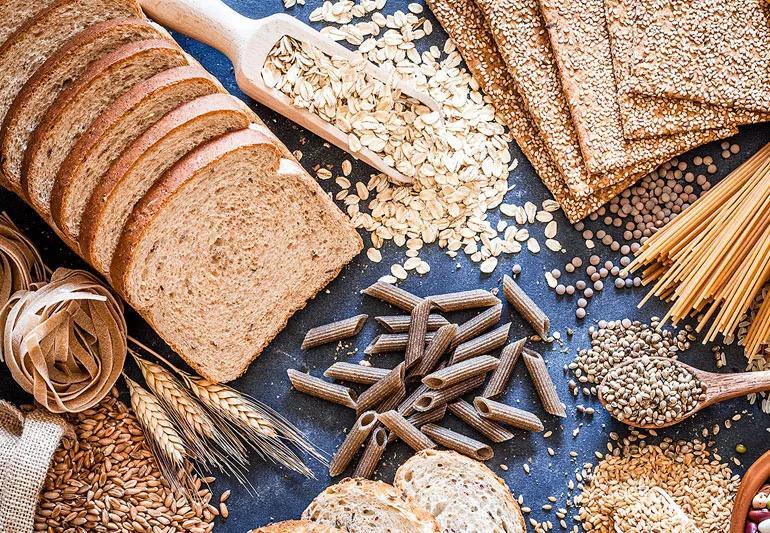
 |

#WholeGrainFlour #HealthBenefits #Nutrition #HealthyEating #DigestiveHealth #EssentialNutrients #WholeGrains #HealthyLifestyle #Wellness #Baking #NaturalFood #DietTips #NutritionalValue #BalancedDiet #FoodForHealth
Unlocking the Power of Whole Grain Flour: A Pathway to Better Health
In the quest for a healthier lifestyle, whole grain flour stands out as a nutritional powerhouse. Unlike refined flour, which strips away the nutrient-rich parts of the grain, whole grain flour retains all parts of the grain kernel - the bran, germ, and endosperm. This preservation ensures that the flour is packed with essential nutrients and fiber, making it a superior choice for anyone looking to improve their diet. In this article, we’ll explore the myriad benefits of whole grain flour and why it deserves a place in your pantry.
Nutritional Benefits
1. Rich in Essential Nutrients
Whole grain flour is a treasure trove of essential nutrients. It contains higher levels of vitamins and minerals compared to refined flour. Key nutrients include:
B Vitamins: Vital for energy production and brain health.
Iron: Essential for oxygen transport and energy metabolism.
Magnesium: Important for muscle and nerve function, blood sugar control, and bone health.
Zinc: Supports immune function and wound healing.
2. High Fiber Content
One of the standout features of whole grain flour is its high fiber content. Dietary fiber is crucial for maintaining a healthy digestive system. It helps regulate bowel movements, prevents constipation, and promotes a feeling of fullness, which can aid in weight management. Additionally, fiber has been linked to a lower risk of chronic diseases such as heart disease, type 2 diabetes, and certain cancers.

Health Benefits
1. Improved Digestive Health
The fiber in whole grain flour supports a healthy digestive system by adding bulk to the stool and promoting regular bowel movements. This can help prevent digestive disorders such as constipation, diverticulosis, and irritable bowel syndrome (IBS). Moreover, a healthy gut microbiome, which thrives on dietary fiber, is essential for overall health and well-being.
2. Better Blood Sugar Control
Whole grain flour has a lower glycemic index compared to refined flour, meaning it causes a slower rise in blood sugar levels. This is particularly beneficial for individuals with diabetes or those at risk of developing the condition. By incorporating whole grain flour into their diet, they can better manage their blood sugar levels and reduce insulin spikes.
3. Heart Health
Consuming whole grains has been associated with a reduced risk of heart disease. The fiber, antioxidants, and other nutrients in whole grain flour work together to improve cholesterol levels, lower blood pressure, and reduce inflammation. All these factors contribute to better heart health and a lower risk of cardiovascular diseases.
4. Weight Management The high fiber content in whole grain flour helps promote satiety, reducing overall calorie intake by keeping you fuller for longer. This can be particularly beneficial for those trying to lose weight or maintain a healthy weight. Additionally, whole grains have been shown to increase metabolism and reduce fat accumulation.
Culinary Uses Whole grain flour is incredibly versatile and can be used in a variety of recipes. Here are some popular ways to incorporate it into your diet:
Baking: Use whole grain flour in bread, muffins, pancakes, and cookies for a healthier twist on your favorite baked goods. Cooking: Whole grain flour can be used as a thickening agent in soups, stews, and sauces. Breakfast: Start your day with whole grain flour-based waffles or crepes for a nutrient-rich breakfast. Choosing the Right Whole Grain Flour There are several types of whole grain flour available, each with its unique flavor and nutritional profile. Some popular options include:
Whole Wheat Flour: Commonly used in baking, it has a robust flavor and is high in fiber. Spelt Flour: An ancient grain with a slightly nutty flavor, it is easier to digest for some people with wheat sensitivities. Rye Flour: Known for its use in traditional bread, it has a distinct, hearty flavor and is rich in nutrients. Oat Flour: Naturally gluten-free and slightly sweet, it is great for baking and thickening.

Conclusion Incorporating whole grain flour into your diet is a simple yet powerful way to boost your nutritional intake and improve your overall health. Its rich nutrient profile, high fiber content, and numerous health benefits make it a superior choice over refined flour. Whether you’re baking your favorite bread, whipping up a batch of pancakes, or looking for a healthier thickening agent, whole grain flour is a versatile and nutritious option.
Make the switch to whole grain flour today and unlock the benefits of better digestion, improved heart health, better blood sugar control, and effective weight management. Your body will thank you for it!
SPARROWMILL.COM